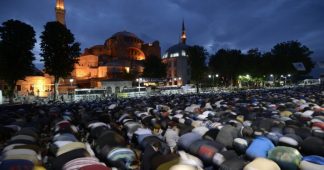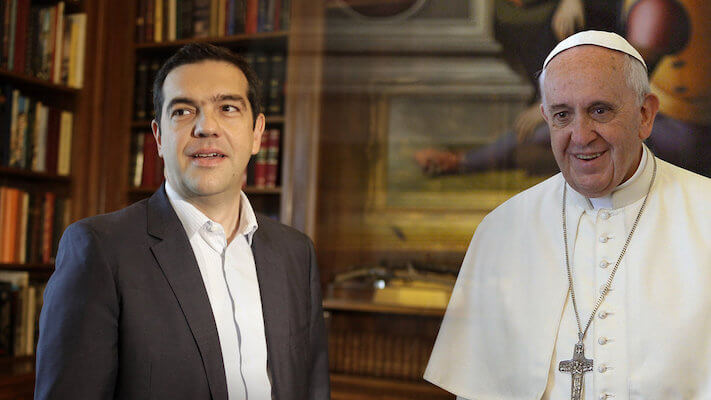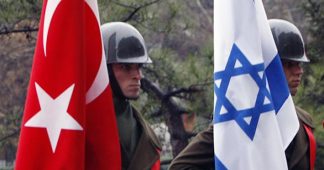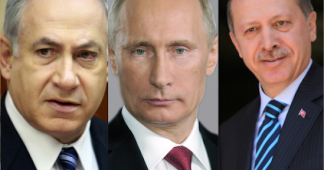By Stathis Habibis
Hagia Sophia (Holy Wisdom) was built in the 6th century in the then capital of the Byzantine Empire, Constantinople, known now as Istanbul. It was a church and a benchmark for the entire Christian world at that time. Hagia Sophia is the greatest example of Byzantine architecture, decorated so richly and artistic that Justinian (the Byzantine Emperor) proclaimed, “Solomon, I have outdone thee!”. Even now Hagia Sophia is regarded as a symbol of Eastern Christianity, as Saint Paul in Rome is regarded as the symbol of Catholic (Western) Christians.
The church was a cathedral for almost one thousand years from 537 AD until 1453, when the Ottomans conquered Constantinople and converted Hagia Sophia into a mosque, which it remained until 1931. In 1935 Mustafa Kemal Ataturk secularized Hagia Sophia and turned it into a museum. Since 1985 Hagia Sophia has been designated a UNESCO World Heritage monument.
Now Mr. Erdogan decided that during Ramadan the Koran must be read in Hagia Sophia and the reading televised. This is rightly considered by many Christians as an offense and the offense takes the character of a major provocation concerning maybe the most historic of Christian churches.
In fact, more isolated than ever both domestically and internationally, the Erdogan regime plays hard both the national and the religious card to find a way out. Samil Tayyar, a deputy for the Justice and Development Party (AKP) since 2011, went so far as to write on Twitter that “since the United States are siding with the PKK, and Germany has clung to the (Armenian) genocide lie, friendship has shifted. It’s our turn. (Hagia) Sophia should be open for worship” (meaning it has to be turned again in a mosque.
The Erdogan regime had begun its “career” by criticizing Israel for the treatment of Gaza Palestinians, trying to become the international leader of the Arab and Muslim world. Then it sided with the West against Libya and Syria, trying to get as much profit as possible. It played the card of a strong partnership of Russia to see its relations with Moscow destroyed. Now it sees the Kurds revolting inside the country and, cornered as never, it seems keen to “play” any kind of cards is possessing, including some mild form of “War of Civilizations” scenario.
Maybe, in Ankara they simply don’t understand that they are used by the same forces wishing to destroy them.











